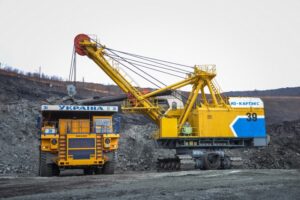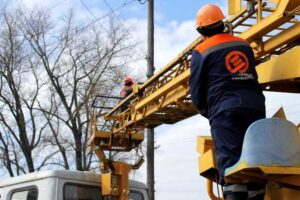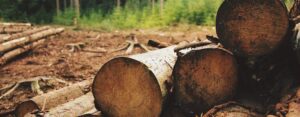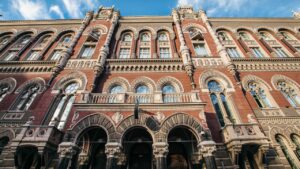
Pivni Mining and Processing Plant (Pivni Mining and Processing Plant, Kryvyi Rih, Dnipropetrovsk region), part of the Metinvest Group, reduced its net profit by 45.9% to UAH 608.853 million in January-September this year, compared to UAH 1 billion 125.047 million in the same period last year.
According to the company’s interim report, which is available to Interfax-Ukraine, the loss in the third quarter amounted to UAH 286.948 million.
In the first nine months of this year, the company increased its revenue by 21.8% to UAH 24 billion 700.220 million.
Retained earnings at the end of September 2025 amounted to UAH 14 billion 29.453 million.
In the first nine months of 2025, production volumes amounted to 4.410 million tons of commercial concentrate and 3.298 million tons of pellets. 99.4% of commercial products for the reporting period were sold on the domestic market.
As part of the implementation of the plant’s capital investment program in Q1-Q3 2025, measures were taken to maintain production capacity, upgrade infrastructure, improve the efficiency of technological processes, and ensure the stable operation of the main production units. In particular, in accordance with the plant’s development program and within the limits of the approved limits, construction and installation work was carried out on capital construction projects: reconstruction of the existing tailings pond with the extension of enclosing structures to the limit mark +165 (stage III) and mark +169, as well as the re-laying of mobile tracks and the installation of a side contact network.
In addition, the development of working documentation for the reconstruction of the tailings pond (from elevation +165 to +169) was continued; the construction of a connecting track was completed and a side contact network for the connecting track was installed within the expansion of the Pervomaisky and Hannivsky quarries (FEL4); the stages of OTR were prepared and a geological and economic reassessment of the reserves of ferruginous quartzites of the Pershotravneve and Hannivske quarries was carried out; The replacement of the SB-1 conveyor was completed; work is continuing on the overhaul of the bath complex of the Central Heating Plant-2 and the PK (GTZ-1); the replacement of U-220 ORU-150 kV oil circuit breakers at the GPP-3,4 substations with gas-insulated analogues was completed.
In 2024, PivGZK increased its net profit to UAH 1 billion 338.185 million from UAH 866.090 million in 2023. The company ended 2022 with a net loss of UAH 2 billion 972.333 million, while in 2021 it received a net profit of UAH 25 billion 293.042 million.
The plant specializes in the extraction, processing, and production of iron ore raw materials. The average number of full-time employees is 4,512.
Metіnvest B.V. owns 100% of the shares of Northern GOK.
Northern GOK is part of the Metinvest Group, whose main shareholders are System Capital Management (SCM, Donetsk) (71.24%) and the Smart Holding group of companies (23.76%). The managing company of Metinvest Group is Metinvest Holding LLC.
Pivnichny GOK’s authorized capital is UAH 579.707 million.

The total volume of repairs carried out by JSC Khmelnytskoblenergo over nine months of 2025 amounted to UAH 76.3 million, according to the distribution system operator in the Khmelnytskyi region.
According to Sviatoslav Kozlenko, head of Khmelnytskoblenergo, as quoted in the company’s Facebook post, the company’s priority is to introduce modern equipment and technologies that allow it to automatically localize damaged sections of the network and instantly reconnect consumers from backup lines, which is a key element of a reliable and modern distribution system.
According to the post, approximately 700 transformer substations and distribution points were repaired, which is twice the planned volume and became an important part of the preparation for the winter season.
In addition, OSR specialists also repaired, in particular, 262 6-20 kV power transformers, 972 km of overhead power lines, including replacing 1,206 poles and nearly 6,000 insulators with new ones, restored 299 damaged 0.4-10 kV cable lines, and cleared 2,683 km of power line routes of branches.
It is noted that more than 150 km of modern self-supporting insulated wire was installed on 0.4-20 kV lines, which significantly reduces the risk of short circuits, and 2,291 insulated inputs to residential buildings were installed. Also, according to the company, 29 modern vacuum circuit breakers were installed instead of the planned 3, more than 2,050 voltage limiters instead of the planned 600, and 29 relay protection and automation devices.
“The volume of work for the first three quarters of 2025 exceeded the planned volume by 10-15%,” Khmelnytskoenergo specified.
The company noted that some of the equipment—transformers, circuit breakers, insulators, and cable and wire products—was provided to the enterprise by international donors, including through the Energy Support Fund of Ukraine.
As reported, JSC Khmelnytskoblenergo, 70% of whose shares are owned by the state, is part of the state-owned group JSC Ukrainian Distribution Networks.

The 10th anniversary of the Deloitte Ukraine Forum “Conductors of Change” summarized ten years of changes, achievements and challenges. At the event, held on November 19 in Kyiv, business owners and executives, government officials, public and cultural figures summarized their experience, identified priorities for the next decade, and discussed how to strengthen existing efforts and where strategy changes are needed.
“Over the past ten years, we, as representatives of business, government and society, have not succeeded in everything we dreamed of. But we have succeeded in many things, even though we rarely take the time to realize it. These achievements are a sign that we will succeed in the future. Yes, not everything we dream of today. But we will succeed in many things,” said Serhiy Kulyk, Managing Partner of Deloitte Ukraine.
This idea became the leitmotif of the anniversary Forum.
Serhiy Kulyk, Managing Partner of Deloitte Ukraine, Oleksandr Bogutsky, CEO of Starlight Media, Serhiy Chernenko, Chairman of the Board of FUIB, Olga Rudneva, CEO of Superhumans, a war trauma center, and Major Robert “Magyar” Brovdi, Commander of the Unmanned Systems Force, spoke about the transformation in society, the financial sector, institutions, technology and the army.
The issue of the army and security has become one of the central issues in the context of the future. “Magyar” emphasized the critical role of the private sector in military and technological development: “Private business should focus on air defense. There are four areas that are already determining the nearest R&D project: electronic intelligence, electronic warfare, radar stations and means of destroying the enemy. Businesses should be involved in these developments to create solutions that will be needed by Ukraine and the whole world.”
Sergiy Chernenko shared his thoughts on how today’s business initiatives will become the foundation for significant changes in the next decade: “We are already helping the military, investing in blood donation projects and developing programs for veterans – from financial literacy training to grant support for their businesses. We will continue this work in the future, because the most important task is to make the service accessible and inclusive for everyone.”
Andriy Bulakh, deputy chairman of the board of MHP, Natalka Vorozhbyt, playwright, screenwriter, director, Oleksandr Khomenko, director, co-founder of the MUR cultural association, Pavlo Shylko, co-founder of the YUNA music award, and Serhiy Zhadan, writer, soldier of the 13th Brigade of the National Guard of Ukraine “Charter”, discussed whether the current stage can be called a real cultural revival and what role business should play in shaping a new Ukrainian identity.
During the full-scale war, interest in Ukrainian culture increased, demand for our own culture increased, and a desire to be proud of our own identity emerged, which manifested itself in the rapid development of cinema, theater, literature, and other areas.
Explaining the origins of the current cultural surge, Natalka Vorozhbyt noted: “Culture has become a matter of life and death – it has never been felt so acutely before. But it all started back in 2014. Then a large number of Ukrainian films appeared, our films were selected for A-class festivals, and Ukraine really appeared on the world cinema map. It was the beginning of the process of self-identification, when we first really asked ourselves who we are and where we are going.”
Oleksandr Khomenko addressed the business and explained why supporting cultural projects is of practical importance today: “Culture is now almost the only thing that keeps people in the country. The more Ukrainians stay inside the country, the more future consumers there will be. Now there is darkness, shelling, and death. Globally, people are supported by the opportunity to live interesting lives: literary evenings, theaters, movies, performances. If this does not happen, people will leave the country and businesses will lose some of their customers.”
The Forum also featured a conversation between Yegor Grygorenko, Partner at Deloitte Ukraine, and Taras Kachka, Vice Prime Minister for European and Euro-Atlantic Integration of Ukraine.
Taras Kachka emphasized that over the past decades Ukraine has passed the point of no return in its transformation and implemented fundamental European integration reforms: “Ukraine plays a crucial role in changing the EU’s security architecture: we are the ”shield” of Europe, as we have the strongest army and unique combat experience. Our role is not limited to security. Ukraine is becoming an indispensable element of European strategic autonomy – from a highly developed IT sector and digital solutions to food security, agricultural production, energy and critical materials.”
Representatives of the government, business, and culture continued to discuss how Ukraine and Europe should respond to new challenges in the areas of security, energy independence, innovation, and demographics: Oleksiy Sobolev, Minister of Economy, Environment and Agriculture of Ukraine, Taras Kitsmei, co-founder and member of the Board of Directors of SoftServe, and Tamara Trunova, playwright and chief director of the Left Bank Theater.
Answering the question of what the world will look like in 10 years, Oleksiy Sobolev emphasized that the future depends on the current efficiency of the state: “What the world will look like depends on our actions. I think the world in the future is a world of opportunities, because it is transforming. How we build alliances and economic integration and with what speed and efficiency depends on us. Unfortunately or fortunately, this will involve a lot of government work.”
Summarizing the discussion, Yehor Hryhorenko said: “Perhaps we did not want to be a ”shield” of Europe. We may have to become one. The main thing is that we find ourselves inside the country, mature, become more confident in our actions and ready to take responsibility.”
Roman Bondar, CEO of Korn Ferry Ukraine, Sergiy Koretsky, Chairman of the Board of Naftogaz of Ukraine, Oksana Syroyid, officer of the 2nd Corps of the National Guard “Charter”, Associate Professor of the Kyiv School of Economics, and Aivaras Abromavičius, Chairman of the Supervisory Board of the Ukrainian Corporate Governance Academy (UCGA), discussed what the leadership of the new generation should look like and what common values can unite business, the state and the military.
Speaking about the necessary qualities of a leader, Oksana Syroyid cited a formula that, in her opinion, pragmatically explains the nature of leadership: “A good leader is someone who combines restrained tendencies to narcissism, paranoia, intellectual will and virtue. After all, without healthy narcissism, a person will not strive for anything.”
Answering the question of how to fight the feeling of hopelessness, Sergii Koretskyi emphasized that the way is through action and responsibility: “If you have the inner confidence that you can do something and be useful here and now, you need to do it. If you know how to do it better, do it. You need to look for motivation, find it, and involve as many people as possible in the cohort of those who are willing, able to make decisions, and take responsibility no matter what.”
Traditionally, the Conductors of Change Forum has a social component. This year, Deloitte Ukraine, together with the Forum participants and partners, raised and donated UAH 800,000 to the Children of Heroes Charitable Foundation, which provides assistance to children who lost one or both parents due to the war.
The partners of the 10th Conductors of Change Forum were: MHP, FUIB, SQUAD, Korn Ferry, Maison Castel, and the social enterprise POG “Inclusively Welcoming”.
Media partners: LIGA.net, Starlight Media, NV, Kyiv Post, Interfax-Ukraine, FOCUS, Ekonomichna Pravda.

In 2025, the state-owned enterprise “Forests of Ukraine” held tenders for the purchase of goods and services worth over UAH 10 billion, as a result of which it was able to save UAH 700 million, the press service of the state-owned enterprise reported on Tuesday.
According to the report, the top three categories of purchases were: logging and related services; fuel; vehicles, equipment, spare parts, and related services.
“97% of the procurement budget is directed through tenders on Prozorro. This is the highest figure not only since the establishment of the enterprise, but also in the entire history of Ukrainian state forestry,” the state-owned enterprise emphasized.
Lisy Ukrainy noted that the most revolutionary changes took place in the procurement of logging services, where traditionally contractors harvest about 80% of the timber, and the remaining 20% is harvested by the enterprise’s own teams. Prior to the reform, state forestry enterprises entered into direct contracts for harvesting without conducting a competitive procedure. Currently, 100% of logging services are procured through Prozorro.
The state-owned enterprise stated that since the beginning of the year, more than 2,000 tenders have been announced, and more than 1,500 procedures have been successfully completed for a total of UAH 2.7 billion.
At the same time, Lisy Ukrainy has centralized and demonopolized fuel purchases and now has several suppliers selected through tenders. The enterprise was able to save up to UAH 12 on each liter of fuel.
The state-owned enterprise added that it was able to achieve high results thanks to well-established communication with businesses, distributors, and manufacturers. This helped to adapt the terms of tenders to market realities and attract the widest possible range of participants to the tenders.

Banks in Ukraine in September 2025 issued 851 mortgage loans worth UAH 1.62 billion, which is 13.1% more than in August, when 789 loans worth UAH 1.43 billion were issued, according to the results of the monthly survey of the National Bank of Ukraine (NBU).
“The quality of the mortgage portfolio remains high: the share of non-performing loans is kept at 12%,” the National Bank commented on the results.
According to the central bank, compared to September 2024, the volume of loans issued increased by 35.4%.
As specified by the NBU, among the 39 banks surveyed, together forming more than 95% of the gross mortgage portfolio, in September new loans were issued by 14 financial institutions.
Most transactions were concluded in the primary housing market: 532 in September for the amount of UAH 1 billion against 480 in August for the amount of UAH 0.89 billion.
In the secondary housing market, 319 transactions were concluded for UAH 0.62 billion, while in August – 309 transactions totaling UAH 0.54 billion.
The weighted average effective rate in the primary market in September remained at the level of 8.13% per annum, while in the secondary market it increased to 9.37% from 8.99% in August.
The survey data show that the most loans in September were issued in Kyiv and Kyiv region – 458 for UAH 949 mln (58.6% of the total volume). Next come Lviv region – 46 for UAH 95 million, Ivano-Frankivsk region – 53 loans for UAH 90 million and Volyn region – 35 for UAH 61 million.
As reported, the National Bank on July 18 this year released a strategy for the development of mortgage lending. The document prioritizes risk reduction through the launch of mass insurance of war risks and updating the rules in the field of housing construction.
The strategy also provides for easier access to mortgages through modernization of state support mechanisms and increased transparency of information in accordance with EU requirements, as well as strengthening the protection of creditors’ rights by updating procedures for dealing with bad debts.

Fatty dairy products will continue to fall in price in Ukraine, with prices falling by 30-35% by New Year’s Eve and the trend continuing until the first half of 2026, according to Olena Zhupinas, deputy director general of the Association of Milk Producers (AMP), speaking on Ukrainian Information Service.
The expert noted that the main reason for the decline in dairy product prices is the reduction in product costs on the European market.
“Since the end of summer, global butter prices have fallen by more than 30%. Ukrainian exporters sold this product to the EU last year at EUR7 per kilogram. Now the price is no higher than EUR4.5,” Zhupinas explained.
According to her, Ukrainian processors are now refocusing on domestic consumers, and the decline in butter prices is already noticeable. This will continue in the future, according to AVM forecasts, but mainly in the form of sales promotions in retail chains: 30-35% off on store shelves.
“This decline has significantly affected the purchase prices of raw milk. In mid-November, the cost of ‘extra’ grade milk, which meets European requirements, fell by 17%. Under these conditions, many producers are working at cost, and some are even operating at a loss,” the AVM expert concluded.